Search by Scripture:
Search a variety of Scriptures from a pro-Torah perspective. Scriptural references include: Matthew, Romans, 1 Corinthians, Galatians, Ephesians and Colossians.
Matthew:
Matthew 5:17-20 – A Thorough Investigation
According to Yeshua the Messiah’s words here in Matthew 5:17, delivered within His Sermon on the Mount in Matthew chs. 5-7, the Savior clearly states what His views are regarding the Torah of Moses. Along with Psalm 23 and the Ten Commandments (Exodus 20:1-17), Matthew 5-7 includes the Beatitudes (Matthew 5:2-12) and the Lord’s Prayer (Matthew 6:9-13), the four passages together composing the most frequently read and valued sections of the Bible for most evangelical Christians. Yeshua’s statements about the Torah are not at all hidden away in some obscure place. Jesus says very plainly that His purpose was not to “abolish” the Torah or Law of Moses, but to “fulfill” it. Gain a deeper understanding of Matthew 5:17-20 from a pro-torah perspective.
Matthew 5:17-20 Yeshua’s View of the Law
What did Yeshua (Jesus Christ) have to say about God’s Commandments? Was it His intention to abolish the Law of Moses? Investigate Matthew 5:17-19.
The Messiah is Pro-Torah
Think not that I have come to destroy (abolish) the Torah (“Law”), or the Nevi’im (“Prophets”): I have not come to destroy, but to fulfil. For truly I say to you, until heaven and earth pass away, not one jot or one tittle shall in any way pass from the Law, until all be fulfilled. Whosoever therefore shall break one of these least commandments, and shall teach men so, he shall be called the least in the kingdom of heaven: but whosoever shall do and teach them, the same shall be called great in the kingdom of heaven. For I say to you, that unless your righteousness shall exceed the righteousness of the scribes and Pharisees, you shall in no case enter into the kingdom of heaven. (Matthew 5:17-20)
The above statements of Yeshua are very troubling for many Christians, primarily because they contradict their theology. Many Christians divide the Scriptures into Dispensations. There was the Dispensation of Law in the “Old Testament,” and now we have the Dispensation of Grace in the “New Testament.” These words of Yeshua are in direct opposition to this theology. Therefore, many resort to twisting His words His words in verse 17 to mean just the opposite of what He said. I have heard it said, “Jesus kept the Law so I don’t have to.” Since Jesus fulfilled the Law, we can safely ignore it. However, after doing some verbal gymnastics with verse 17, there remain further problems with verse 18.
Romans:
Romans 14 and the Sabbath Commandment
Many use Romans 14 to argue that “all days are now the same” according to God, and that the Sabbath is no longer important, but the context of this passage — particularly its context within second temple Judaism.
Did God “Do Away” With the Law in Romans?
Q and A with Dr. Michael Brown. How do you reconcile the seemingly contradictory messages from Romans 10:4 and Romans 3:31?
1 Corinthians:
1 Corinthians 10:23 – What is Lawful?
The statement, “All things are lawful so we can edify the body” is an extreme stretch of what 1 Corinthians 10:23 communicates. This verse repeats the slogan “Everything is permissible” (NIV) or Panta exestin (Pa,nta e;xestin), which Paul has refuted earlier in 1 Corinthians 6:11, chastising various Corinthians for thinking that they could get away with certain sinful activities, which he has said is something not at all profitable or useful. Later on in the letter of 1 Corinthians, more has to be communicated, and it surely behooves a responsible Bible reader to view 1 Corinthians 10:23 in light of the wider cotext of 1 Corinthians 10.
1 Corinthians 7 | Does The Torah Apply to Gentiles?
On the whole, 1 Corinthians 7:17-24, is a passage of elusiveness for most of today’s individual Messianic Believers. Bits and pieces of 1 Corinthians 7:17-24 have been quoted here or there by various writers and teachers, but for the most part it tends to be something skipped over by Messianic Bible readers, much less probed for its theological and philosophical significance. 1 Corinthians 7:17-24 has, however, been examined in some detail by various leaders within Messianic Judaism, and perhaps because of some of the conclusions drawn by them, 1 Corinthians 7:17-24 has been widely avoided or flat ignored by those within the more independent, Hebrew/Hebraic Roots Messianic sectors. The challenges presented by 1 Corinthians 7:17-24, are reflective of a more widescale avoidance, on the part of most of today’s broad Messianic movement, to examine the Epistle of 1 Corinthians—a letter, which in some ways, is even harder to understand than the Epistle to the Galatians.
1 Corinthians 6:12 – What Things Are Lawful?
The pastor’s statement “All things are now lawful,” on the basis of 1 Corinthians 6:12, can be a very slippery slope if it is viewed from the perspective that there are no boundaries whatsoever for the conduct and behavior of Messiah followers. If “All things are now lawful” means that born again Believers are not to keep any laws or commandments from God, then could this not be taken as meaning that we are allowed to do whatever we want, regardless of Divine consequences? Would this, at least, not mean that those things which are considered sin in the Torah or Law of Moses—which (poor) Ancient Israel was prohibited from doing, sometimes with violation meriting capital punishment—are now permitted?
Galatians:
Galatians 5:2-3 | Falen From Grace?
It is true that in various sectors of Messianic Judaism, particularly those which promote a bilateral ecclesiology of the Kingdom of God composing two sub-groups of elect, Israel and “the Church,” that it is believed that only Jewish people are really supposed to follow the Torah. Non- Jewish Believers can keep the Torah if they wish, but it is not required or really expected of them. Galatians 5:2-3 is offered as a proof text in support of this position, as the non-Jewish Galatians who would be circumcised in the First Century, would apparently make themselves obligated, the same as any Jew, to keep the Torah.
Galatians 3:23-25 Meaning of ‘Schoolmaster’ or ‘Pedagogue’
Daniel Botkin provides an understanding definition of ‘pedagogue’ as contained in Galatians 3:23-25: “But before faith came, we were kept under the law, shut up unto the faith which should afterwards be revealed. Wherefore the law was our schoolmaster to bring us unto Christ, that we might be justified by faith. But after that faith is come, we are no longer under a schoolmaster.”
Galatians 3:23-24 How the Torah Leads Us to Christ
The pastor we are examining is correct when he asserts, “The Law is our tutor to lead us to Christ,” citing Galatians 3:24 as evidence. The challenge with his assertion, though, is not in the need for the Torah’s instruction—and our widespread human inability to keep it—to reveal our sin and point us to the Messiah and the eternal redemption He provides (i.e., Romans 10:4, Grk.). The problem is that (1) when the good news is declared in much of Christianity today, people are only told about the love of God but are often never told about the judgment that is pronounced upon them as sinners, precisely because they are condemned as Torah-breakers (cf. Isaiah 24:5-6). And, (2) it has become far more commonplace in examination of Galatians to read Galatians 3:22- 25 from the perspective of it not speaking of individuals on the road to salvation, but instead of it speaking historically of the Jewish people keeping the Torah prior to the arrival of the Messiah— with the Torah only in temporary effect to be obeyed until His arrival.
A Torah Positive Summary of Galatians
Any discussion on the subject of Torah almost always mentions Sha’ul’s Letter to the Galatians. Many assert that this letter absolutely prohibits the practices of the first five books of the Bible by believers in Yeshua or that the Torah can have a meaningful place in the everyday life of the believer. Because of this thinking we thought it would be helpful to present a different approach to the Book of Galatians, one which we think is more in tune with the tenor of the rest of Scripture.
Investigating Galatians: A four part series
This four-part series provides an excellent in-depth investigation into the book of Galatians from a pro-torah perspective. Several questions are addressed to include: Was the apostle Paul against the Law? What was the point of God’s Law? Is there to be a different law for Jew and Gentile?
Ephesians:
Is Paul Opposed to the Torah (Law) in Ephesians 2:14-15?
Ephesians 2:14-15 are challenging verses for many within the Messianic movement, with few being able to even respond to the pastor’s remark “The Law was abolished in the flesh of Christ.” If in Ephesians 2:14-15 the Apostle Paul is saying that Yeshua the Messiah abolished the Torah of Moses, then this would be in flat contradiction of the Savior’s own words regarding fulfillment of the Torah (Matthew 5:17-19)—yet no one can deny the significance of how in Him a “one new humanity” (NRSV/CJB/TNIV) composed of Jewish and non-Jewish Believers must emerge, a clear testament of His grand salvation for all people. We need to look at Ephesians 2:14- 15 a bit more closely, and keep in mind what kind of law is being specifically addressed here. Is God’s Torah actually a cause of enmity or hostility for people, or might something else be in mind?
Ephesians 2:14-15: What has been abolished?
Ephesians 2:14-15 are challenging verses for many within the Messianic movement, with few being able to even respond to the pastor’s remark “The Law was abolished in the flesh of Christ.” If in Ephesians 2:14-15 the Apostle Paul is saying that Yeshua the Messiah abolished the Torah of Moses, then this would be in flat contradiction of the Savior’s own words regarding fulfillment of the Torah (Matthew 5:17-19)—yet no one can deny the significance of how in Him a “one new humanity” (NRSV/CJB/TNIV) composed of Jewish and non-Jewish Believers must emerge, a clear testament of His grand salvation for all people. We need to look at Ephesians 2:14- 15 a bit more closely, and keep in mind what kind of law is being specifically addressed here. Is God’s Torah actually a cause of enmity or hostility for people, or might something else be in mind?
The ‘Wall of Separation’ in Ephesians 2:14
The unity Paul speaks of is inclusive (“How do we include everybody?”), not exclusive (“What people do we need to kick out?”). In Ephesians 2, what was the “law of commandment” and the “wall of separation”, and what was abolished by Jesus? How to work toward unity today. Roles of the leaders toward unity. Unity by coercion will not last; authoritarianism divides and is contrary to the Ephesian instruction. Every joint has its role – no exclusiveness.
The ‘Dividing Wall’ in Ephesians 2:14
Many commentators interpret Eph. 2:14 (the “dividing wall” passage) as teaching that some (all?) of God’s commandments in the Law (Torah) have been done away with, so that Jew and gentile could be “one new man” in Yeshua. But is this really what’s being said?
Colossians:
What was ‘nailed to the cross’ in Colossians 2:14-16?
Colossians 2:14 is the common verse that is quoted by many Christians to assert that “the Law of Moses was nailed to the cross of Jesus Christ.” But is this truly what is being said in Colossians 2:14? Did the Torah truly get nailed to the cross, with its high and holy standard of conduct nullified for the post-resurrection era? Could the idea that “the Law was nailed to the cross,” be little more than a sound byte that fails to take into consideration the actual issues present in the surrounding cotext?


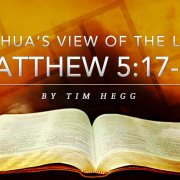
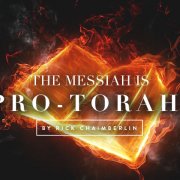
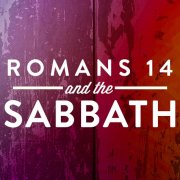
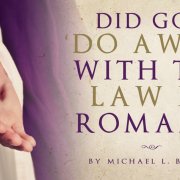
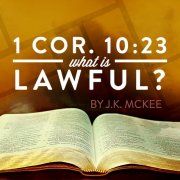

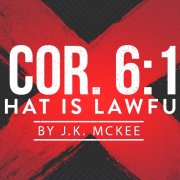

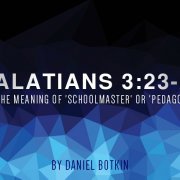
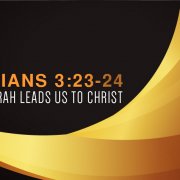
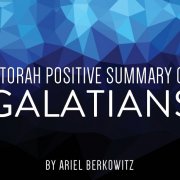
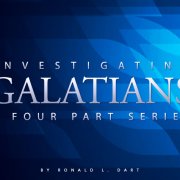

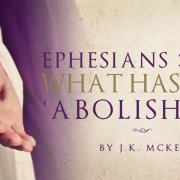
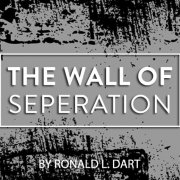

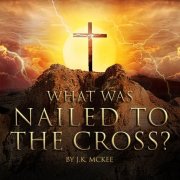
Recent Comments: